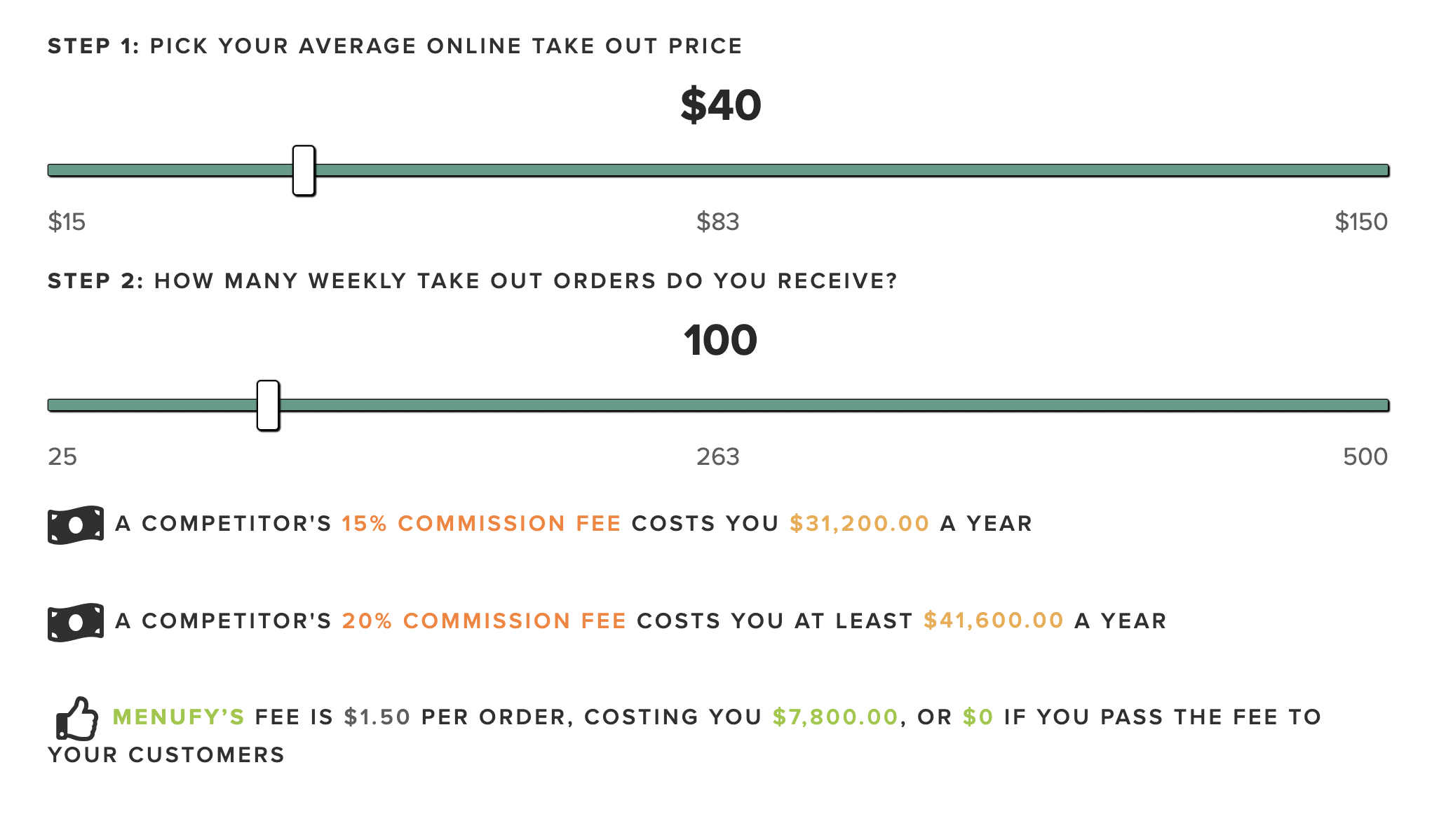To become accessible to customers and tap into the online ordering market, restaurant operators are faced with a choice between two types of delivery systems.
Third-party or in-house.
Each option offers benefits and disadvantages, and choosing between the two or using both should not be a decision that is made lightly.
Third-party delivery services provide a convenient experience to customers and restaurateurs, while in-house drivers often equate to restaurants earning more money per order.
Read through our team's breakdown of both systems and choose the delivery option that works for your restaurant.
Third-Party vs. In-house Delivery
Third-Party Delivery
The Positives
Instantly begin delivery upon enablement
Increased online visibility
Low effort for management
The Negatives
High per-order fees
Possible low-quality customer service
Potential service outages
Despite the high fees and customer complaints, the online food ordering industry is forecasted to reach a valuation of $365 billion by 2030. Third-party ordering and delivery services have perfected the art of delivery by providing a streamlined user experience at every turn.
One of the most appealing advantages of third-party delivery for restaurant owners is the fast sign-up process and the ability to outsource the entire delivery operation without the upfront cost or effort.
Management is already in the weeds dealing with supply chain issues, rising food costs, and labor shortages. So third-party service allows restaurant leadership to off-load yet another operational headache.
Choosing to outsource delivery to established companies with a hoard of hungry daily users also can lead to increased exposure from being listed on another platform. However, restaurants are trading online visibility for a high price, literally.
"Third-party delivery providers charge restaurant fees as high as 30% per order, and these extra costs slash deeply into the already razor-thin margins," explained Andy Lowder, Technical Sales Manager & Business Development for Menufy by HungerRush.
Nikki Finley has worked at Menufy for over five years and has witnessed one of the other major downfalls of third-party delivery.
Outages.
"With 3rd parties, you have to consider potential technical outages which disrupt service to you and your customers. I have seen numerous instances where a delivery service is down for hours during peak ordering times," explained Nikki.
Restaurant owners who rely solely on third-party drivers, who are not necessarily incentivized to provide great service, sacrifice control of the customer experience and the quality of the meal when it arrives.
What Menufy recommends for our restaurant partners:
We get it. Third-party delivery has its perks.
That's why Menufy by HungerRush offers an easy, integrated option for our clients that choose to use reliable delivery services.
Menufy restaurant partners can turn third-party delivery on and off with the flip of a switch.
Enabling a third-party delivery partner with Menufy's online ordering platform is a tried and true way to help gain the attention of new and existing users in your area.
All of our third-party delivery partners have a fixed delivery rate of 12.5% per delivery order when enabled on your Menufy Manager compared to 20-35% per order with other online ordering companies.
Our delivery partnership gives you access to experienced, top-tier drivers to fulfill your customers' orders at affordable prices for restaurants and their online customers.
In-House Delivery
The Positives
More money per order
Control the customer experience
Collect and utilize customer data
The Negatives
Finding reliable delivery drivers and vehicles
Time invested in operation management
Keeping up delivery quality during peak times
It's been reported that 7 out of 10 customers prefer to use a restaurant's app or website to place online orders. This means patrons are looking for ways to cut out the middleman, including ordering delivery directly from restaurants.
"To meet customer demand for delivery and make it a net positive, restaurants need to own the delivery process," suggested Andy Lowder.
For busy restaurant managers, operating in-house delivery on top of day-to-day operations may require additional time and resources. But the time spent perfecting your delivery also means complete control over the customer experience, from the order being placed to when it is delivered.
"When you send food out via a third-party, restaurant operators have no idea how it's gonna land or even if it will. When you have an employee in-house running it, you have total control and accountability," explained Andy.
Restaurants who can offer their delivery can keep all the money except that normally would go towards processing fees. Profit margins are greatly improved when pairing in-house delivery with an integrated online ordering system such as Menufy.
In addition to increased earnings, operators who own the delivery component can capture and utilize customer data for future marketing outreach.
However, it can be hard to find and retain drivers who have reliable transportation unless the restaurant is willing to front the cost of providing delivery vehicles. This is especially true if the online order volume is high enough to require a fleet of drivers.
"It's tough to schedule and manage, but once you figure that out, it pays for itself," advised Andy.
What Menufy recommends for our restaurant partners:
If a restaurant already has a stellar group of in-house delivery drivers or is transitioning, Menufy has you covered.
Operators can quickly build delivery zones by mileage and zip code or map out custom zones. Restaurant management with delivery drivers can activate this feature by adjusting their delivery settings.
Our partners can add wait times, delivery fees, and order minimums for added customization for each unique zone.
The in-house option is worth considering for restaurants looking to oversee the customer interaction from when an online order is placed to when it's delivered.
This Last Bite
These days, online ordering and delivery are standard customer expectations.
"Restaurant operators should weigh the positives and negatives of each option while also considering which best fits their business model," suggested Nikki.
Stores that place a high value on customer service can benefit from sticking with in-house delivery and a set of dedicated drivers.
Businesses that are just starting and have yet to source reliable drivers can utilize Menufy's third-party partnerships to satisfy customers' delivery needs.
Menufy by HungerRush's online ordering platform and custom websites make delivery a breeze for customers and operators regardless of which delivery option a restaurant, cafe, or food truck selects.
If you're starting a curbside, delivery, or pick-up service or if you're looking for ways to improve your current system, here are best practices and tips for success.
ABOUT THE AUTHOR
Melissa Dimmitt, Marketing Communications Coordinator
Melissa is the Marketing Communications Coordinator for Menufy by HungerRush. She began working with restaurant managers and executive chefs over a decade ago, coordinating seasonal menu releases, executing photoshoots, and creating fresh digital content.





